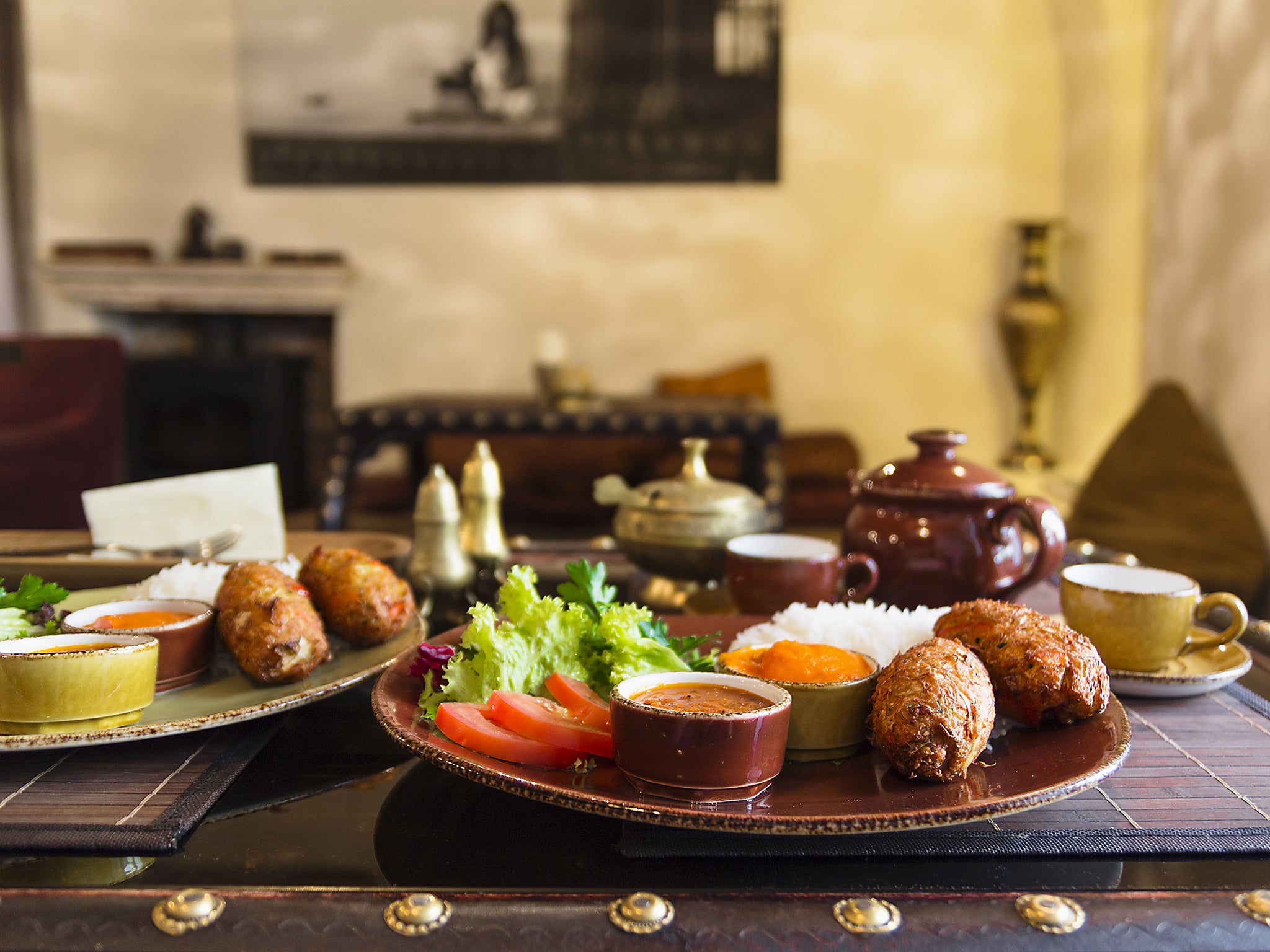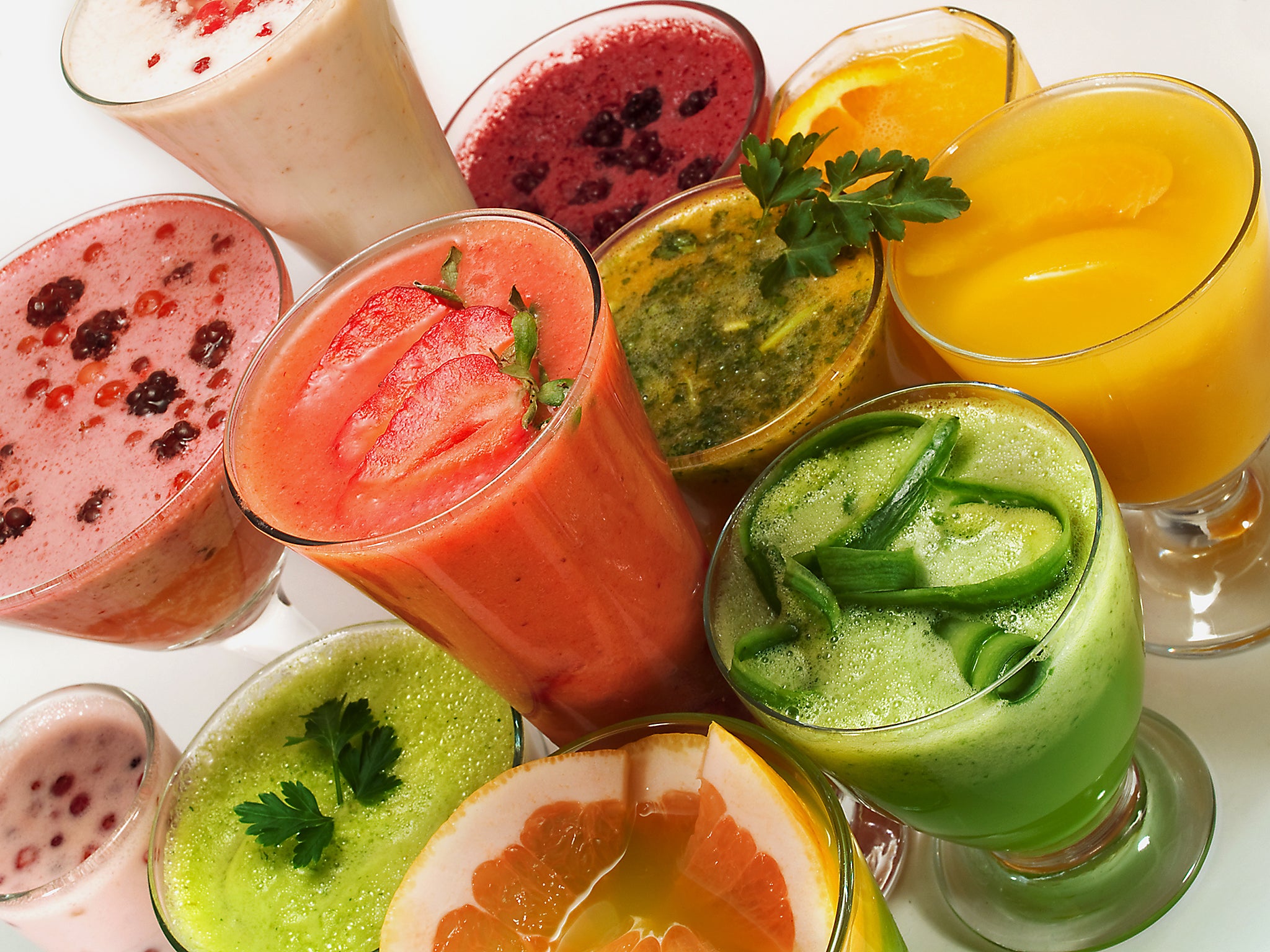Clean is the new dirty word: What will we be eating and where this year?
Clean eating, kombucha, and kimchi were big in 2016. But what will we be eating – and where – in 2017? Nutrition and sustainability are watchwords for the new year with a dose of door-to-door delivery and teetotaller tipples thrown in for good measure

Your support helps us to tell the story
From reproductive rights to climate change to Big Tech, The Independent is on the ground when the story is developing. Whether it's investigating the financials of Elon Musk's pro-Trump PAC or producing our latest documentary, 'The A Word', which shines a light on the American women fighting for reproductive rights, we know how important it is to parse out the facts from the messaging.
At such a critical moment in US history, we need reporters on the ground. Your donation allows us to keep sending journalists to speak to both sides of the story.
The Independent is trusted by Americans across the entire political spectrum. And unlike many other quality news outlets, we choose not to lock Americans out of our reporting and analysis with paywalls. We believe quality journalism should be available to everyone, paid for by those who can afford it.
Your support makes all the difference.Clean eating, kombucha and kimchi were big in 2016. But what will we be eating – and where – in 2017? Nutrition and sustainability are the new watchwords, with a dose of door-to-door delivery and teetotaller tipples thrown in
Clean: The new dirty word
The “clean eating” craze started out as a good idea by encouraging us to eat more whole, unprocessed foods. But somewhere along the line it went off the rails – if foods weren’t clean then they must be dirty or unhealthy, right? The backlash has begun and 2017 will see it gain momentum. Instead, we’ll get back to basics and ditch the clean-eating guilt trip. We’ll focus not only on what we eat but how we eat it. The grab-and-go culture of eating on the run (sometimes literally) won’t end but we’ll look for more balance by taking time out during the day to eat in a more considered way, whether we’re noshing a burger or a vegan stir-fry.

The benefits of this mindful eating? For a start, eating slowly gives your body a chance to tell you it’s full sooner. It’s better for your digestion. You might even realise that that bag of crisps doesn’t taste quite as great as you thought it did. It’s not only eating mindfully in 2017, but cooking mindfully, too. We’ll start to see time in the kitchen not as a chore but as time well-spent. We’ll be inspired by food writers and restaurateurs like Alex Hely-Hutchinson, author of 26 Grains (Square Peg) and 2017 titles like What to Eat and How to Eat It by Planet Organic founder Renée Elliott (Pavillion, June 2017).

Vegetarians get their day in the sun…
In 2016, vegetables pushed meat to the side; in 2017 they’re set to shove it off the plate altogether. The reason? We’re coming to understand that meat production does a number on the environment and that feeding a hungry planet can’t be done with meat alone. The second reason is that talented chefs and food writers are showing us just how versatile (and tasty) vegetables are, making the struggle to eat five a day a thing of the past. Need some inspiration? Kate Hackworthy’s Veggie Desserts (Pavilion, August 2017). It promises that it’s not about sneaking vegetables into our cakes and puddings but making them the star.
Vegans get respect...
There are more than half a million vegans in the UK, according to the Vegan Society. That’s a whopping three and a half times the number from 10 years ago. Veganism used to be considered a quirky, left-of-centre lifestyle choice; in 2017 it goes mainstream. Expect to see more vegan cookbooks too, including Vegan (Phaidon, May 2017) is a bible of a book by Jean-Christian Jury. At almost 600 pages it promises to be the definitive guide to vegan cooking.
On the flip side…
Even if you don’t ditch meat from your diet, you’ll probably be eating less of it. And when you do, you’ll be splashing out for the highest quality you can afford. Topping the list of beefy books to keep an eye out for is Prime: The Meat Cookbook by Richard Turner (Michell Beazley, March 2017).
Home delivery
Home delivery is the name of the game in 2017. Recipe box schemes like HelloFresh and Mindful Chef will woo your wallet with promises of seasonal, expertly sourced ingredients and lip-smacking recipes delivered to your door. Expect an emphasis on healthy eating, flexible delivery times and lots of choice. Home delivery of food from restaurants is set to continue growing. Service is the name of the game, with companies like Deliveroo, Just Eat and uberEATS vying to outdo each other by delivering everything from sushi to ice cream sundaes, dim sum and dumplings 24/7. Just Eat is trialling a robot delivery service (a six-wheeled, cube-shaped pod that can travel up to four miles per hour). Looking to set themselves apart are members-only concierge service apps like Henchman in London that promises to deliver any food you want within an hour. Oh, and they’ll pick up your dry cleaning too.
Dining out
Expect to see more pop-ups go permanent as the current generation of street food vendors and supper club hosts find permanent bricks-and-mortar homes. Scandinavian food will continue to be hot, with the recent opening of a branch of New York’s Aquavit, and planned 2017 openings for Danish bakery Ole & Steen, and Aster, all in London. Mexican food – tacos, burritos and other casual dishes – continues to capture our eye and stomach, as well as more refined dining from the likes of Michelin-starred chef Martha Ortiz, from Dulce Patria in Mexico City, who opens a restaurant in the Intercontinental Park Lane hotel in London. And Georgian and Eastern Europe cuisines get some long-overdue attention: look out for Olia Hercules’ new book on Georgian food, Dedakatsi: the Cook Book – A Journey Through the Wild East (Mitchell Beazley, August 2017) as well as Supra by Tiko Tuskadze (Pavilion, July 2017).
Waste Not, Want Not
Beetroot greens, carrot tops, and citrus rinds – nothing will go to waste as home cooks and chefs heed the call to stop wasting food. According to Love Food Hate Waste, we toss about 7m tonnes of food and drink each year. Millennials will lead the march, looking for ingenious ways to use up every bit of the food they buy. High tech will help, with new apps like FoodCloud helping to connect businesses with surplus food to charities that need it.
The Science of Eating
Expect to hear terms like microbiome and adaptogens being bandied about at the dinner table. Microbiome is basically your internal bacteria biosystem. We’re talking “good” bacteria that help to regulate body function, energy levels and basic health and well-being. Adaptogens are botanicals that can be used to reduce stress levels in our bodies. People will customise their diets based on age, health and activity levels and we’ll be inspired by traditional systems of medicine like Ayurveda and the idea of balance within our body, incorporating diet, herbal treatments and breathing. We’ll be reaching for spices like turmeric for taste but also for their health benefits.

Rising water levels and the mocktail
After a booze-fuelled holiday, January is prime time for giving alcohol a miss. But this year, expect more people to reduce intake or bid farewell to alcohol for good. Eager producers will fill the gap with flavoured vitamin and antioxidant-spiked waters while savvy bar and restaurant owners lure non-drinkers out with an array of eye-catching mocktails and teetotaller tipples. We’ll all be drinking more plain H2O as well, finally realising that since our bodies are made up of about 60 per cent water we could probably use more of the clear stuff.
Join our commenting forum
Join thought-provoking conversations, follow other Independent readers and see their replies
Comments